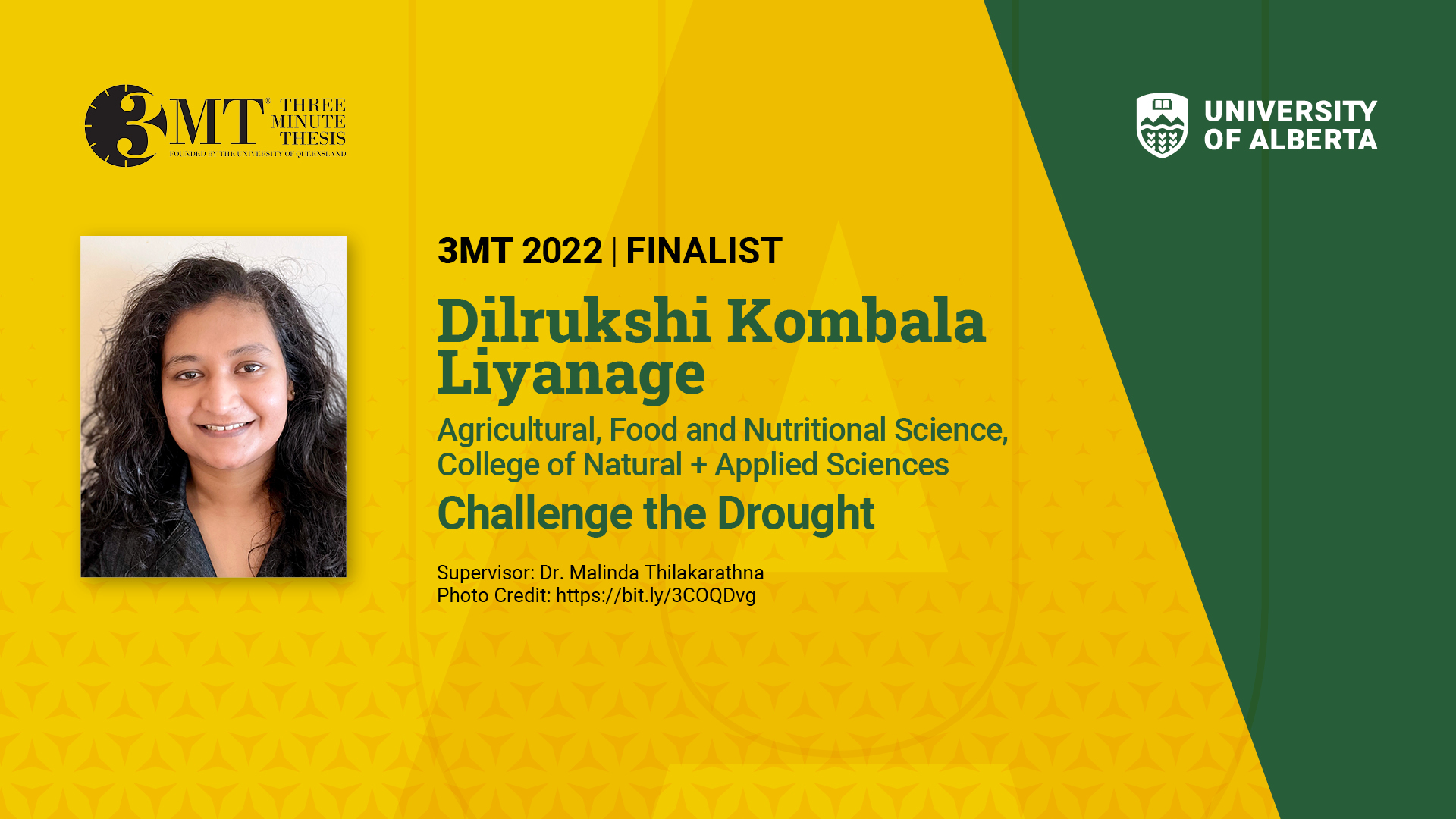This week, we are profiling finalists for the Faculty of Graduate Studies and Research's Three Minute Thesis (3MT) competition. 3MT condenses thousands of words and years of research led by graduate students who are making a difference in the local and global community. Check out all of the finalist profiles and vote for the People’s Choice Awards. Find out if your pick was a winner during the livestreamed Finals on March 29, 2022 at 1 pm MST.
Tell us about your project/research!
My research project is on identifying drought-tolerant soybean cultivars that would help create new varieties in breeding programs that can withstand drought stress, have high nitrogen-fixing and produce high yields.
How did presenting a Three Minute Thesis (3MT) help explain your research to the public?
3MT gave me a great opportunity to look at my research in a simpler yet interesting way. It helps explain my research to the public and make them aware of the anticipated challenges of climate change. I believe it’s a great platform to present our research studies to the public.
What does innovation mean to you?
Innovations always don’t have to be radical and disruptive and improve our understanding of something drastically. For me, innovation means using a critical thinking process to do something in a better way.
What’s one big problem you want to solve through your work?
The global population is predicted to reach 9.7 billion by 2050, and there is an increasing demand for food, with a specific need for protein. Soybean is the leading commercial grain legume grown in the world. In Canada, soybean is the third largest field crop and its production has recently grown significantly in the Canadian Prairies. Notably, the changing global climate is predicted to cause large areas of the world to experience extensive drought conditions over the next few decades. Many regions in western Canada have already been experiencing frequent and severe droughts over the last few decades. There is a great need to improve the drought resistance in soybean to increase the food production for the rising population in the world. Through my research, I’m addressing future climate change issues and food production using innovative science.
Who do you look up to as a mentor or collaborator?
I look up to my supervisor Dr. Malinda Thilakarathna as a mentor for my graduate life and I must say he’s one of the greatest mentors I have met in my student life. He’s a vastly experienced person in the field of plant microbial interactions. He always encourages his students to develop research-related skills as well as soft skills. I’m so lucky to be a member of the Plant-Microbe Lab.
Why is the University of Alberta a great place to learn, research and/or innovate?
The U of A is one of the best universities in Canada and North America for its research accomplishments in many fields. The U of A is research intensive and invests a lot in improving its research facilities. Students get the chance to work with many new technologies to do groundbreaking research studies. The academic staff is so supportive and highly qualified with lots of experience which is a great benefit when designing and conducting complex research studies. I feel privileged to get selected to pursue my higher studies at U of A in the Department of Agriculture, Food & Nutritional Science, which will be a great asset for my future career.
Innovator Spotlight is a series that introduces you to students whose big ideas are making a big difference.
Do you know someone who’s breaking boundaries at the U of A? (Maybe it’s you!) We’re interested in hearing from students who are creating new solutions to make our world better, no matter their discipline or year of study.
Get in touch at youblog@ualberta.ca.
